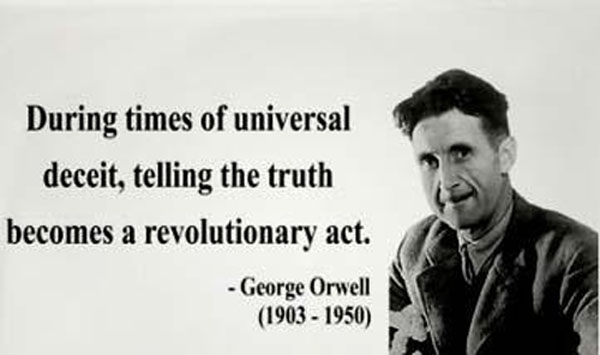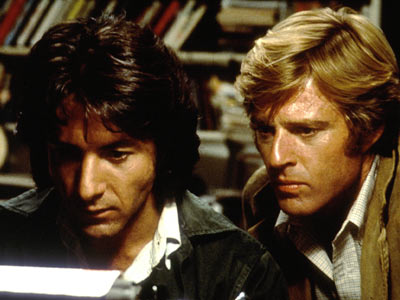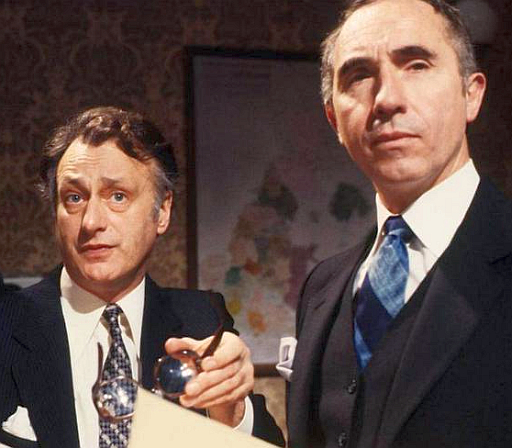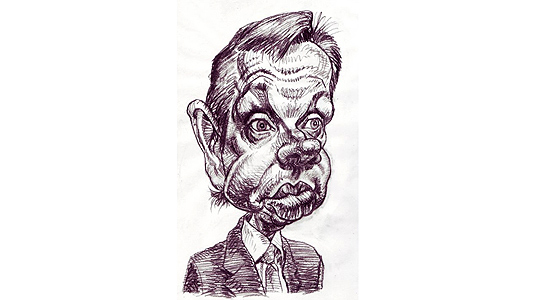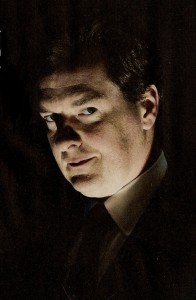Tale One
Once upon a time, about 2000 years ago, a man from Palestine, occupied by the Roman Empire at the time, was born. He went around preaching pretty subversive stuff like “love your neighbour” and not to respond to violent aggression. He soon got quite a band of local followers. This upset the Roman authorities and local religious leaders, so they found him guilty of some trumped-up charges and crucified him. This pretty quickly damped down the problem, his followers dispersed and nothing was heard of him again. (Although I’m not sure if I’ve got the last bit right.)
Tale Two
Another time, about 600 years later another charismatic young man attracted a band of followers in an area by the Arabian Desert. At the age of 40, on a religious retreat in the mountains, he met the Angel Gabriel, who passed on to him the words of God, which he memorized and told his followers. Later on, some of his followers wrote these down in a book and called him a great prophet. Gabriel mentioned that God told him that he may have said some slightly different things in the past, but these were his final thoughts and he would never change his mind again. So Gabriel, who had acted as a messenger before (coincidentally, when he made a call to the mother of the man in Tale One), would now have to be made redundant.
About 100 years later, some of the followers started writing tales that had been told about the prophet. These took the form of the words he had said, or the things he had done, as heard or seen by someone who had told someone else who had told someone else, and so on, before the last person wrote it down. These were gathered into another book.
Nothing much happened for the next 1000 years, except for one thing that matters to our story. The followers of the prophet prospered and ruled over a vast empire. This, the Ottoman Empire, by the standards of its day, was ruled benevolently with toleration of all beliefs of the many different peoples of the empire. The followers of the man in Tale One, by contrast, broke into many rival, warring groups. These groups fought, persecuted and killed each other and were totally intolerant of the other groups and of people with different faiths to their own. The descendants of the people who had originally rejected the teachings of their great man were especially picked upon and persecuted and killed wherever they fled.
Tale Three
About 300 years ago, another man, this time from central Arabia, studied all the writings produced by the followers of the prophet in Tale Two. He also saw all the other customs and practices which had grown up over the previous 1000 years. He thought these were grave sins and condemned them. He started to spread his ideas about taking the teachings of the prophet and paring them back to an imagined pure form. Some of his ideas were very cruel: he taught people to hate all those who disagreed with him and to kill anyone who changed their minds away from his own ideas. He said some pretty nasty things about women too: this was in marked contrast to the practices of the prophet, who had women in senior roles amongst his followers.
This man’s fortunes changed when he moved to Diriyah and attracted the attention of the local tribal leader. They made a pact that they would help each other to bring the locals back to the “true” ways – or at least true in their own interpretations. These practices continued down the generations for about 100 years, but with little overall impact. All the neighbouring rulers thought their practices were a bit mad.
Tale Four
About 100 years ago, things had changed. The great empire of the followers of the prophet crumbled and new empires grew. The rival leaders of these new empires fought a great war, for reasons nobody is really sure. Leaders of two great empires on the winning side, Britain and France, used their power to carve up the land in the Arabian Peninsula by drawing straight lines on a map. This produced new countries such as Syria and Iraq, whose boundaries bore no relationship to the culture, history and traditions of the region. The remaining warring tribes in the region fought each other for supremacy and land. The Anglo-French Declaration of 1918 offered self-determination to the Arabs: this promise was broken. Britain, above all, made various promises to these tribal leaders, only to break all their promises when it suited them, which it always did. This led to Britain gaining a – justifiable – reputation for duplicity in the region.
Tale Five
The British discovered oil in Iraq in 1927. The British ensured they, and not the Iraqis, reaped nearly all the financial benefits of this discovery until the Iraq Petroleum Company was nationalized in 1972. Bigger reserves were found a few years later in Saudi Arabia. Westminster College and Cambridge educated Arabist and freelance spy, St John Philby, was at one time courted by the British establishment. They then turned their backs on him. In revenge, Philby manoeuvred the situation so that the Americans (Standard Oil), not the British, won the oil concession from the Saudi King. (Philby’s son, Kim, was to go on to greater notoriety as a Soviet spy.)
The Americans were pleased with their coup, but they were not that bothered as they had plenty of oil of their own for their needs. The Saudis continued to rule their land according to the cruel and weird ides of the man in Tale Three. But they had all this oil, so everyone else pretended not to see the corruption and human rights abuses. It only affected a few Arabs.
Tale Six
Another great war broke out about 75 years ago, this time for a good reason: to get rid of a great tyranny which had grown up in their midst. The Americans were able to make a great fortune from profiteering in war supplies to their allies. As a result, the average American was able to afford to buy a bigger and bigger car, which needed more and more oil to drive it. The Americans now needed to import oil from other countries and the Saudis had most of all. The oil producers formed a club whereby they could use their power to push up the price of oil six-fold. The Saudi princes (7000 of them) grew very fat on all this money and wondered what to do with it.
Because of the secrecy, oppression of dissidents and lack of democracy and of the rule of law in their country, the Saudis were able to channel increasing amounts of money to groups all around the world. These groups sought to convert vulnerable members of the followers of the prophet to their cruel, violent and intolerant ways. All the governments of the so-called free world pretended this wasn’t happening. They didn’t want to upset the Saudis because they needed their oil. Yet all the time, these evil teachings were spreading like a cancer throughout the world.
Tale Seven
Matters came to a head on 11th September 2001 when a group of violent, deluded extremists committed the most audacious and deadly series of criminal acts in a single day. Most of the attackers were Saudi nationals. The leader, Osama Bin Laden, of the group responsible, Al Qaida, had close family connections to the House of Saud. Over 3000 people, mostly Americans, died in what the Americans now call “9/11”.
By this time, a very silly person indeed, George W Bush (thanks to fraudulent vote-rigging in Florida aided by his brother Jeb) had become President of the USA, despite losing the popular vote. He decided to bomb and invade Iraq, whose tyrannical leader, Saddam Hussain, had embarrassed his father when he was president some years earlier. The pretext was a lie that Hussain had weapons capable of directly threatening the west. The coalition of the more-or-less willing who joined the Americans included Britain. The British Government, regardless of the party in power, had been under a long-standing delusion that there is a “special relationship” between the USA and Britain. In practice this delusion was maintained by the junior partner in the relationship promising to support whatever the senior partner did or told it to do.
The Americans had their own delusions. After the fall of Hussain, the Iraqis would clamour to set up a US-style liberal democracy and groups would somehow emerge to bring this about. For, after all, who wouldn’t want to be just like America? It didn’t quite work out like that. The errors included a total lack of a plan for the peace and a destruction of the components of Iraqi civil society. In the vacuum that followed, disorder and corruption were rife. Many of Bush’s best friends were linked to companies who made a killing from the enforced privatization and contracts awarded. Even if they didn’t need it, the Iraqis were given a wonderful model of a corrupt administration and, indeed, that continues to this day. Thousands of fighters and civilians died in the ensuing chaos. The result was a catastrophic failure. Iraq is still a less safe place than before the US-led invasion: whether its human rights record is any better is a matter of debate.
Tale Eight
The ideas of Salafism, promoted around the world by money mainly from Saudi individuals, had led to the formation of many groups, who split and mutated. Best known in the west are the Taliban, Al Qaeda and now Daesh (or Islamic State, Isil or Isis, depending on preference). Each seems to be a more extreme and violent mutation of its predecessor. Bin Laden was tracked down by the Americans to Pakistan (a supposed ally) and executed. Any Christians involved in the decision were presumably persuaded by the effectiveness of the crucifixion in Tale One to stamp out his ideas.
With each turn of the screw, as every new group exceeded the last in terms of brutality and inhumanity, some of the offspring spawned are now biting the hand that once fed them. In the eyes of the most swivel-eyed of the fanatics, the “repression with consumerism” approach of Saudi Arabia is seen as incorrigibly decadent. The House of Saud is finally wondering what evil it has unleashed on the world: the west stays silent.
Tale Nine
Western intervention in Libya turned another brutal dictatorship into a failed state. One consequence has been to make it much easier for criminal people-traffickers to use Libya as a base for exploiting desperate migrants trying to reach Europe and safety. An “Arab Spring” uprising and fledgling democracy in Egypt was brutally overturned. This led to complete U-turns in western diplomatic policy in the space of a year or two. Western duplicity rears its head again.
David Cameron proposed to the UK Parliament in 2013 a bombing campaign in Syria to overthrow Assad, but was defeated by opposition from Labour and the Liberal Democrats.
Tale Ten
Which brings us to the present day. Syria, led by another brutal dictator, and traditionally supported by Russia and Iran, is a total mess. Following the crushing of a pro-democracy uprising in 2011, Syrian people took to the streets to protest. Violence escalated and the country descended into civil war. Rebel brigades were formed to battle government forces. By August this year, a quarter of a million people had died. Six million refugees from war were attempting to find places of safety and shelter, four million of them have left Syria, mostly into Turkey. Around 6% have attempted to reach Europe.
Daesh have taken advantage of the situation to establish a “caliphate” in parts of Syria and Iraq, the border between them irrelevant. A US-led coalition has been bombing Daesh-controlled areas with some tactical advantages (such as disrupting the supply of oil to fund their operations), but with no significant overall success. Canada has announced its intention to withdraw their bombers. Russia started bombing in Syria, apparently targeting anyone opposed to the Assad regime – including Daesh.
Following the Daesh-linked attacks in Paris on 13th November, President Hollande has significantly stepped up the rhetoric against Daesh and also France’s military operations. We now have a complicated multi-dimensional civil war with various foreign countries bombing different targets and a messy ground war without any ground troops from outside the country. In this complex situation, David Cameron is now trying to persuade the UK Parliament to vote for Britain to join those bombing Syria, but this time on the other side.
Respected military figures and politicians from all main parties have doubted the wisdom of Britain joining the US-led bombing campaign. The proposals have many similarities with the situation in Iraq to rid the country of Saddam Hussain. Again, there is no strategy for dealing with the situation when, or if, Assad’s regime is toppled. In his address to the House of Commons, Cameron spoke of 70,000 “moderate” opposition groups who could somehow defeat Assad and bring a new, stable democratic future to Syria. These people live in a different part of Syria from that occupied by Daesh and are split into about 100 factions. This sounds horribly like a re-run of the 2003 mistakes. Only this time, the success of any military intervention seems even less assured as the current conflict is even messier than in Iraq.
Both Conservative and Labour parties are split on this issue – although the rebellion is much smaller on the Tory benches. Jeremy Corbyn has said he is personally unconvinced of the wisdom or effectiveness of Britain adding a few more bombers to the mix. Cameron’s argument seems to boil down to the old adage of sucking up to the Americans, to preserve our “special relationship” delusions. Corbyn has called for Labour MPs to return to their constituencies and consult the opinions of members there. I’m unsure whether this is a sign of a new, more democratic form of UK politics or a failure of leadership. The British media have already decided it is the latter.
My own take on this? Daesh is an unspeakably barbaric organisation that needs to be stopped somehow, ideally by starving it of funds. But, short of genocide, military intervention almost never brings lasting peace. The warring parties eventually have to sit down and talk through their differences.
Fairy Tales
Of course, none of the above is true. It’s all fairy tales, isn’t it? Surely no one in the real world could be this stupid.
